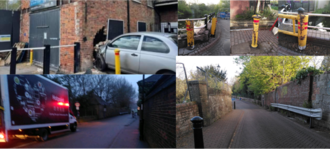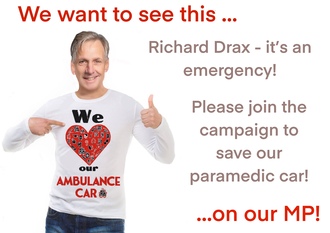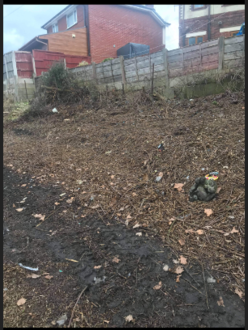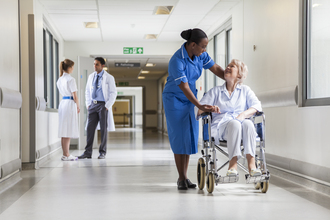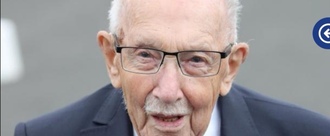-
Please ensure that GPs in NHS Surrey Heartlands CCG complete training in the MenopauseMenopause affects half of all patients GPs see on a day to day basis but sadly many women do not receive the support they so desperately need. 1 out of 4 women experience debilitating symptoms that affect their quality of life, with many giving up work or reducing their hours in order to cope. 50% of menopausal women say they feel depressed and are often misdiagnosed and given antidepressants. One third of women visiting their GP are not even made aware of HRT. Many women are incorrectly denied HRT due to existing or family health concerns. Many women are fearful of asking for HRT because of the widespread belief that it causes breast cancer, thanks to the headlines from 2002 when a flawed study incorrectly stated there was a link. Despite the study being discredited, this belief has continued to this day. As a result of these misunderstandings, only 1 in 10 women choose to use HRT. My experience of menopause started around 10 years ago and I consider myself to be in the 25% of women who experience debilitating symptoms that can change lives. I have experienced a myriad of symptoms, many of which I consulted various GPs about, resulting in x rays, ultrasounds, heart monitors and antidepressants. Not once was menopause mentioned. Despite my request for HRT to help with hot flushes and night sweats, I was advised not to use it because of the increased risk of breast cancer. Two years ago my symptoms became considerably worse, so again I sought HRT, this time successfully, but my GP was unfamiliar with the up to date products I should have been prescribed and gave incorrect information. I ended up having to pay a private Menopause Specialist for correct dosages. I have since developed a chronic condition related to menopause that so far no GP has been able to help me with. The right advice early on would have made a huge difference, but sadly it wasn’t forthcoming. Instead, it has taken many expensive appointments with private specialists to try and improve my health and I am still struggling. Luckily, I can afford to pay for expertise but many women do not have this financial luxury. Instead, they continue to suffer having been refused HRT by their NHS doctor, and have nowhere else to turn for help. My struggle has lasted about 10 years so far, but how much misery could have been avoided if even one of my GPs was fully up to date on research, symptoms and treatment? Unfortunately, experiences such as mine are all too common, and something needs to change. The frustrating thing is that HRT is so beneficial and can protect women from many chronic conditions including dementia, heart disease, Alzheimers, colon cancer and osteoporosis. Surely we should be encouraging all women to think about using it to help them live longer, healthier lives? The financial savings to the state would be huge in terms of reduced health care costs. Employers would also benefit from having highly skilled women stay in their workforce instead of losing them as they struggle to cope with their symptoms. And of course the benefits to the women themselves and their families would be huge. Menopause affects everyone. On 13 May 2021 I was shocked to read that a survey of 33 university medical degrees, carried out by menopause campaigner Diane Danzebrink, revealed that 41% of the courses did not have any menopause education on the curriculum. How many medical students are therefore leaving without any knowledge of the menopause at all? Some will go on to specialise in general practice where I believe the menopause module of their training is voluntary. How many newly qualified GPs take up positions in the community, in our area, with no knowledge or training whatsoever? I find it staggering in this day and age that the needs of women are deemed so unimportant that doctors are not required to complete training on the one thing that affects all women. I’m sure if something affected the health and well being of every single man in the population that a solution would have been found long ago. We are therefore asking you to do everything in your power to improve the training given to our GPs. A woman needs to be able to go to her GP and receive up to date and accurate information about the menopause, its symptoms and how it can be managed, in order to improve the quality of her life and long term health. The Menopause Charity has just been launched and its goal is to provide up to date information to women, GPs and other health practitioners. For the next year they are giving away one free place per GP practice on an accredited professional development course called, ‘Confidence in the Menopause’. I urge you to request that all GP practices take full advantage of this offer to ensure that there is at least one menopause specialist in every practice as soon as possible, and that other GPs are required to complete the training over the course of the year. This would be an excellent step forward which would impact positively on all the women within your region and on your budgets. For more information the link is below. https://www.themenopausecharity.org/training/ Thank you so much for reading this. We hope you agree that the training of our GPs in this very important and much neglected area needs to be addressed. Cate O’Neill229 of 300 SignaturesCreated by Cate O'Neill

-
Make Woodmill a Safer RouteToo many incidents have happened on this section of Woodmill Lane; most recently a Nissan Micra crashed into the mill building causing serious damage and closing the road for an indefinite period (1). Previous major incidents have included the injury of a 64-year-old man, who was struck by a van as he was walking his dog (2) and a collision and altercation between motorists that involved the Police (3). Other incidents include an 11-year-old cyclist being driven at as they left the activities centre with the driver claiming that they had ‘skipped the lights’ as well as cars running into the bollards - costing the council in repairs to the pavement - and numerous near-misses as cars and vans mount the curb. This is a historic site (4) that, rather than being enjoyed, is blighted by air and noise pollution and the ever-present risks posed by unwary and dangerous drivers. Whilst many drivers have learned to take care passing through this bottleneck, there are always those who either don’t care or are unaware of the hazards on this stretch of road. For too long we have hoped that all drivers will take more care at this location and yet, despite efforts by Southampton Council to improve traffic flow, collisions and near-misses continue to occur. Additionally, during a time of pandemic, social distancing is impossible with the path narrowing to less than a metre at some points and with two blind corners making it risky to step out and create safe space for other pedestrians. Fears of congestion at other crossings of the Itchen are no reason to keep this route open; research shows that the only way to reduce congestion is to provide alternatives to driving - including making active travel both safe and attractive - and demand management such as reducing access to roads (5). If Southampton City Council wants to encourage healthier travel to benefit the city, what better way than to implement a safe crossing of the Itchen for active travel at Woodmill? In time, drivers will opt for other transport modes that mean they can enjoy this safer route. 1. https://www.dailyecho.co.uk/news/19296021.closed-woodmill-lane-remains-shut-car-smashes-southampton-building/ 2. https://www.dailyecho.co.uk/news/18483049.hit-run-woodmill-bridge-southampton/ 3. https://www.dailyecho.co.uk/news/17918044.police-called-woodmill-bridge/ 4. http://sotonopedia.wikidot.com/page-browse:woodmill 5. http://www.internationaltransportforum.org/jtrc/infrastructure/congestion/CongestionSummary.pdf221 of 300 SignaturesCreated by Southampton Street Space
-
Urgent need to control GP workloadGeneral Practice is facing unprecedented demand after years of failing to address a mismatch between workforce and workload. If urgent action is not taken, GPs are in danger of burnout, and patients may be unable to access medical care.1,097 of 2,000 SignaturesCreated by Katie Musgrave
-
Richard Drax MP: Please Help us Save Our Paramedic Car!Swanage is at the end of the Isle of Purbeck peninsula and is a popular holiday destination. With the planned loss of A&E and Maternity from Poole, Swanage will be approaching 30 miles from Bournemouth or Dorset County, with much of the journey on busy single track roads. A freedom of information act response from the Ambulance Trust shows that in 2019 there were 996 call outs of a paramedic car to BH19 postcodes - that's just Swanage, Langton, Worth + Studland. Over half of these call outs were category 1-3 emergencies, the most serious, and there were more than 400 call outs each year where there was risk to life. Data for call outs to BH20 postcodes in 2019 - Corfe, Wareham and wider Purbeck - has been requested, but not yet received.658 of 800 SignaturesCreated by Laura Rowan
-
Stop the Removal of Winchester Emergency Dept or Build the New Hospital Here.There is major concern from the residents of Winchester that the emergency department will be removed, with the added worry of the air ambulance service’s lack of funding and the time it takes for an ambulance to arrive being so long, some residents reporting up to 8hrs. In addition and contrast to Basingstoke; Winchester has 660,000 tourist each year and a large number of students. This combined far exceeds Basingstoke’s population and therefore requires at a minimum that a 24/7 accident department should remain In Winchester and be invested in. The residents hereby petition to keep the 24/7 accident and emergency department in place at a bare minimum. They also suggest given the above a site should be found ( as was the new leisure centre ) just outside or within Winchester for the new hospital to be built on the Basingstoke and Andover side to serve North Hampshire. Winchester has excellent bus and rail links and we the residents believe it’s in the best interest of everyone to consult the public properly and listen to what they want and need.This includes more thorough advertising of consultation opportunities creating more public awareness. Please sign and share this link to as many people as possible if you believe your local essential services are worth fighting for for the sake of all Winchester residents young and old and our families.21,907 of 25,000 SignaturesCreated by C Cousins
-
Wigan Council - Fix the Subsidence at Wigan Rd Park Atherton before a serious accident occursThe Council Officers have been in contact but are not reacting quickly enough even - it has been over a year - even though Councillors have tried. It is an accident waiting to happen and could be either geographical or climate change that is causing it. Either way there is a serious risk of potential harm to Children should it completely collapse. As the summer months arrive more children will be playing and should the worse happen it would be an avoidable disaster if the councils environment and parks dept act now as a matter of urgency.204 of 300 SignaturesCreated by Michelle Morris
-
Stop the closure of the Mental Health Unit in Bassetlaw HospitalIf this unit is closed people that require mental health support will have to go to Millbrook in Mansfield - 18 miles away. This is a long car journey, but if you do not have access to private transport, its an even longer journey by bus. I have been a patient at both Millbrook and Bassetlaw, and as I was fortunate enough to have a car, my family was able to visit me. However, I am concerned for families that do not have their own form of transport. This could act as a barrier to treatment, or family support during treatment. The pandemic has put an extra strain on mental health support services, and exposed how important they are. I believe that it is important to keep the services at Bassetlaw Hospital open as a result.2,724 of 3,000 SignaturesCreated by Jean Cullen
-
Care Parity for adults with Cerebral PalsyWhen people living with cerebral palsy reach 18, the joined-up healthcare they've received stops. This is wrong. We want a government review to adopt the recommended guidelines so when people with CP become adults, their care doesn't ‘fall off a cliff’. They are being treated like Second Class Citizens. People with other lifelong conditions receive joined-up healthcare provision and a clear care pathway, so why not adults with cerebral palsy? Simply adopting the NICE guidelines would be life-changing for 130,000 UK adults with CP and, it’s estimated, would boost the economy to the tune of £422mn by helping people stay healthy and stay in work. We just want Care Parity for CP. Please sign the petition and convince the government to do the right thing. NICE guidelines apply to England, Wales and, effectively, Northern Ireland. In Scotland, there is an equivalent called SIGN guidelines. There are currently no SIGN guidelines for adults with cerebral palsy – a further inequality. Adult CP Hub is also insisting that the NICE guidelines can and should be adapted as SIGN guidelines and adopted in Scotland Image credit: CPG7,140 of 8,000 SignaturesCreated by Emma Livingstone
-
Didcot Mountain Bike ParkDidcot's population has grown rapidly due to the creation of three significant housing developments. Along with local infrastructure considerations there needs to be provision of leisure facilities. Didcot has a vibrant mountain bike community thanks largely to its proximity to the Ridgeway. While this offers miles and miles of bridleway to improve ones fitness those looking to develop other bike skills need to look much further afield, often involving a drive, an option not available to the younger generation. The physical and mental benefits of any sport are well defined and mountain biking is certainly no different. Furthermore by providing enhanced leisure facilities we may be able to discourage anti social behaviour in the community. I believe a mountain bike park in Didcot would promote the town in a positive way, in line with the objectives of the garden town plan and promote physical and mental health in our local community.1,645 of 2,000 SignaturesCreated by Daniel Andrew
-
Pay award for District NursesDistrict nurses have 24 hour responsibility for caseload of patients, most of the time over 100 patients, DN are first line mangers to teams of community nursing staff. District nursing is losing experienced nurses to hospital environments due to the lack of professional recognition and associated pay scale. As DN service transforms to meet the needs of the population, the care DN provide is complex and unlike hospitals, our wards are never closed, we are the wards without walls. Any investment in District nursing is to protect admission to acute care and not as a specialist service in its own right. With money invested in prevention admission , enhanced community care and acute frailty teams. District nurses were previously thought of as pillars of the community, supporting families for centuries. Now they themselves are requiring to be supported The people of Scotland deserve to have highly specialised community nurses in the heart of their community; improving health outcomes, supporting self care and providing end of life care at home. Please give the DISTRICT NURSES the professional recognition and the financial equality of hospital based nursing staff in Scotland5,716 of 6,000 SignaturesCreated by Jacqueline Finnegan
-
CAPTAIN SIR TOM MOORE HOSPITALAt the age of 99 Sir Tom. Decided to selflessly raise some much needed funds for our NHS at a time our country was on its knees due to Covid 19.... He managed to raise a phenomenal amount of £33 million.... Today our hero laid down his sword I cannot think of a more fitting honour and legacy1,841 of 2,000 SignaturesCreated by Samantha Haworth
-
Funding for ColeMy 8 year old son Cole has uncontrollable drug resistant focal Epilepsy. Cole had brain surgery when he was 2 years old and has tried 20 different medications since he was 3 months old. He was given a prescription for Epidiolex the uk only licensed CBD product however his health continued to decline. I now have a private prescription for Cole for a Bedrolite oil which is whole plant oil and he is the best he’s ever been. Cole almost died in March and thanks to this oil he’s thriving. Unfortunately the NHS won’t fund this for Cole or give this medicine under a NHS prescription so we are having to pay £1000 a month to keep him on the oil that saved his life. I am asking the Scottish Government to put funding in place to pay for Cole’s oil until they do the tests and trials they have been promising me for over 2 year’s. The Scottish Government say it’s inappropriate to fund a private prescription however this life changing medicine is not available under NHS due to restrictive guidelines written by BPNA. We are in the middle of a pandemic and it’s become impossible to fundraise so I’m asking for your help to show your support to have funding put in place for this life saving medicine, and for the Scottish Government to actively engage in finding a permanent solution. Thank you Lisa6,184 of 7,000 SignaturesCreated by Lisa Quarrell
Hello! We use cookies to improve your experience by providing insights into how the site is being used. Find out more.

